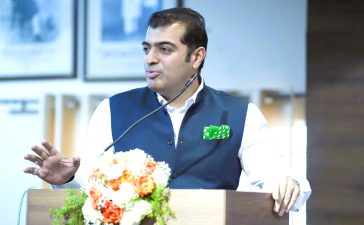Karnataka Student Leader Slams Govt’s ‘Contradictory Stance’ on Foreign Universities
Bengaluru, Sept 14: A prominent student leader in Karnataka has accused the state’s Higher Education Minister of contradicting the government’s own education policy by advocating for foreign universities, while simultaneously neglecting a crisis of funding and infrastructure in existing public institutions.
Durgesh Bargur, State Secretary of the Karnataka Students’ Organisation, launched a sharp critique against the government’s priorities. His comments come in response to recent statements made by the Higher Education Minister during a visit to London, where he spoke of plans to facilitate the entry of foreign educational institutions into the state.
Policy Versus Promise: A Clear Contradiction
In a press statement issued on Sunday, Bargur pointed to a direct conflict between the Minister’s announcement and the recommendations of the state’s Education Policy (SEP) Commission. “The State Education Policy Commission has clearly stated in its report that opportunities should not be provided to foreign universities. Despite this, the Higher Education Minister’s statement is contrary to the state government’s own position,” Bargur stated.
He argued that the government’s focus is misplaced at a time when state universities are grappling with severe challenges. “Our government universities are severely struggling due to a lack of grants, a shortage of professors, and basic infrastructure problems. In such a situation, instead of focusing on developing the existing universities, talking about facilitating foreign universities is laughable,” he said.
Diverting Resources from Public Education
Bargur highlighted the growing inaccessibility of higher education for economically disadvantaged students. “Students from poor backgrounds are being forced away from higher education as they cannot afford the fees in the current government colleges themselves,” he noted.
He proposed alternative measures for funding education, suggesting the government should curb unnecessary expenditures instead of looking outward. “If the government is truly committed to improving our public institutions, it must cut down on unnecessary expenses. It should stop the huge tax exemptions given to corporate houses and reduce the salaries and allowances of legislators and ministers. That money should be invested in strengthening education. We must provide free, quality education for all,” Bargur emphasised.
Separate Grievance: Medical Education Quota Decision Draws Ire
In a related issue, Bargur also condemned the state government’s decision to implement a 15% Non-Resident Indian (NRI) quota in government medical colleges, labelling it a “conspiracy” to exclude students from Dalit and poor middle-class backgrounds.
He called the move a direct attack on democratic education and the quality of the healthcare system. “This decision provides an opportunity to sell seats and is a direct assault on the foundations of democratic education, medical training, and healthcare quality,” he said.
Media Updates: +91-93531 21474 [WhatsApp] | indianowme@gmail.com
Bargur further criticised the reliance on the National Eligibility-cum-Entrance Test (NEET), stating that even students scoring 90% in their Pre-University Course exams are unable to secure admission. “In this scenario, instead of abolishing the NEET exam, implementing the NRI quota is shattering the dreams of the poor and the middle class. This is anti-student,” he asserted.
The criticism sets the stage for a potential political debate on the government’s education strategy, pitting its globalization ambitions against the pressing need for internal reform and equitable access.
![]()











